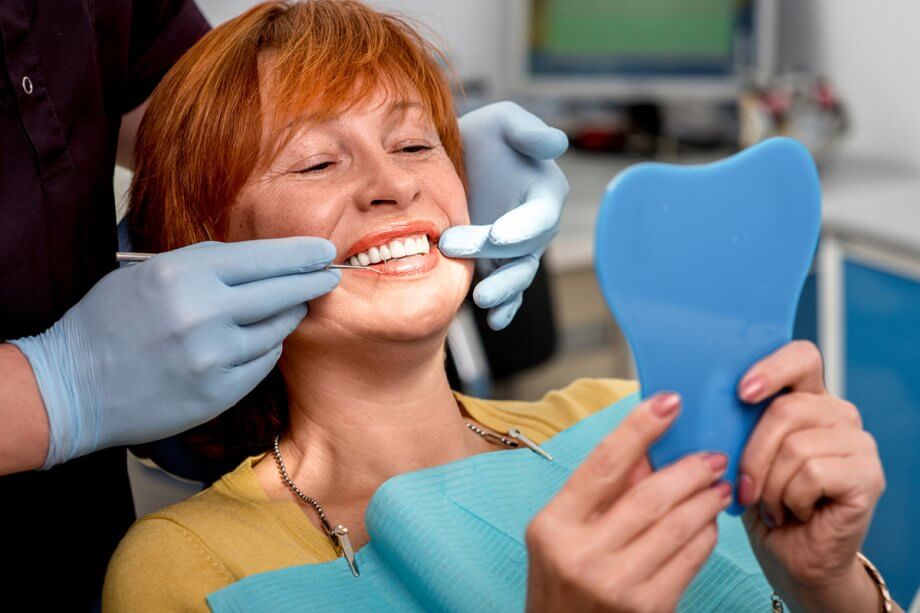Dental implants are the most advanced technology in tooth replacement. A dental implant completely replaces the tooth and root structure for a natural look and function. With quality dental implants it can seem as if you never lost a tooth.
Now you may be thinking that sounds expensive. But before you settle for an inferior option, here’s what you should know about dental implants and how much they cost in Bardonia, New York.
What Are Dental Implants?
When a tooth is missing or needs to be extracted, a dental implant can replace it. It is a titanium post shaped like a screw with threads to help it fuse with the bone in your jaw. It is surgically placed in the bone to take the place of the natural root of your tooth. Once the implant has bonded securely with the bone, a crown can be attached that looks and functions like a real tooth. Multiple dental implants can be placed in the jaw to support a bridge or dentures.
Average Cost of Dental Implants in Bardonia, NY
The cost of a single dental implant can range anywhere from $1,500 to $6,000. On average, you can expect to pay around $3,000-$4,500 per tooth.
Why Do Dental Implants Cost So Much?
There are a few different reasons that dental implants are on the high end of the cost range for dental procedures and tooth replacement options specifically:
- Materials. Quality dental implants are made with costly materials. The implant itself (the root) and the abutment (the attachment) are made of titanium, a biocompatible material that exists safely in the body. The prosthesis (crown, bridge, or denture) is typically made of porcelain because it is strong and resembles natural tooth enamel.
- Technology. Proper dental implant placement is crucial to the immediate and long term success of the procedure. This requires the use of advanced technological equipment during the planning and the placement process. The cost of operating this equipment is part of what factors into the cost of dental implants.
- Time. Multiple appointments are required in order to get dental implants. There is an initial consultation, planning appointment, the placement of the implant, the attachment of the abutment, the placement of the prosthetic, and follow up appointments. All of these take time and expertise, which dentists and other team members need to be compensated for.
Are Dental Implants Covered by Insurance?
Most basic dental insurance plans do not cover dental implants. However, this is beginning to change as dental implants are more in demand and their dental health benefits are realized. To find out if your insurance plan covers dental implants, contact your provider or refer to your benefits guide. If you don’t currently have coverage for dental implants, inquire about upgrading to a plan that may cover them.
Can I Afford Dental Implants Without Insurance?
If you don’t have dental insurance or if your plan doesn’t cover dental implants, there are ways to make them more affordable. Financing is one option for paying for dental implants and dividing the cost into smaller, more affordable payments. Many options are interest free or low interest for a promotional period.
Why Choose Hudson Valley Periodontics & Implantology?
We are in-network with most major insurance providers to help you get the most coverage from your insurance. Our office is equipped with advanced technology and our doctors are trained and experienced to provide the highest quality dental implant placement.
To learn more, call 845-623-6666 or contact us today to schedule an appointment.
Frequently Asked Questions About Dental Implants
Are dental implants worth the cost?
Dental implants provide a natural looking and functioning replacement for missing teeth. With proper placement and maintenance, dental implants can last forever. It is estimated that over 3 million Americans currently have dental implants.
Is a dental implant better than a bridge?
There is a reason why dental implants cost more than bridges. You are paying for better quality. A dental bridge is a workable replacement option, but it requires two teeth to be permanently reduced and fitted with crowns to support the bridge. The healthy enamel is gone forever and the support teeth often sustain damage over time.

